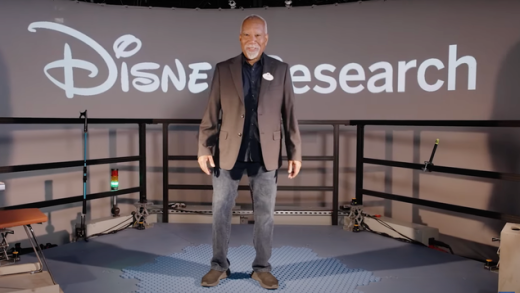On September 12, the Rona Jaffe Foundation Writers’ Awards celebrated its 25th anniversary. The program was created by novelist Rona Jaffe to identify and support women writers of unusual talent and promise in early career. Since its inception, the program has supported 158 outstanding emergent women writers for a total of $2.9 million. The 2019 winners Selena Anderson (fiction), Magogodi oaMphela Makhene (fiction), Sarah Passino (poetry), Nicolette Polek (fiction), Elizabeth Schambelan (nonfiction), and Debbie Urbanski (fiction/nonfiction) received awards of $40,000 at a private ceremony in New York City. Award-winning author Jacqueline Woodson delivered these remarks at the ceremony. Woodson’s newest novel, Red at the Bone, will be released on September 17.
When I was 10, I would lock myself into our tiny bathroom in the Bushwick section of Brooklyn and with a hairbrush as my microphone, I’d commence to giving my Pulitzer Prize acceptance speech. I’d thank my mom and my grandmother, my siblings for letting me tell my stories and my best friend, Maria, for always encouraging me to be a writer. In these speeches, which happened regularly, I stared at myself in the mirror—me as audience, me a jury, me as winner.
What I knew about this prize was that it was given to writers. That’s it. Writers got the Pulitzer Prize. I didn’t know anything else really. I didn’t know about the National Book Award or Nobel Prize or even the Newbery really—because the one Newbery Award winning book in my classroom was a novel I despised. And I won’t give the title of it because I truly don’t believe in censorship but believe that people should make their own judgments about a book but it was called Sounder. And I’ve forgotten who the author was. But it was a book about a Black family and a dog. And of course the dog dies. But that’s not why I hated it. I hated it because the only character in the whole book with a name was that dog. And I love dogs—I have two huge ones. But unlike that narrative, in my house, the dogs and the Black, brown, and white people have names. There’s my partner Juliet. And there are our children, Toshi and Jackson Leroi. Their names are thoughtful and deeply intentional. My dad was Jack, I’m Jacqueline, my son is Jackson Leroi. My daughter is Toshi. Named for her godmom, Toshi Reagon, who was named for her godmom, Toshi Seeger.
We gave our kids those names to show them our love, to show them their humanity, to show them their legacy. We gave them those names to let them know they are wholly human. They are here. And they matter.
I wanted the people I loved to have names.
In my books, when I leave a character unnamed, it is because he or she or they are just backdrop, just there to give the reader a sense of place, atmosphere. Those unnamed characters are not going to matter to the whole of the story. Not really. You’re not going to remember them, you’re going to remember the ones with names.
I wanted the people I loved to have names.
And as a child standing in front of that mirror, I already knew that my story had a right to exist in the world. That my characters would have names and people would remember them and because I knew there was this prize thing going on in the world—that seemed to be the next obvious step!
I think often how lucky we are. How there are so many speed bumps on the way to becoming. That [with] the everyday micro-aggressions and insidious messaging coming at us from our screens and our magazines and other people—how amazing it is that we are here telling our stories.
This year I gave my first TED Talk—which actually went up on the site this morning, so the day has been a tad distracting for me to say the least! TED talks didn’t exist when I was a kid. And the idea of a writer having to do this much public speaking—it wasn’t like that then either. Or maybe it was and I just wasn’t in those rooms. I swear that mirror speech was under five minutes. Even as a child I knew peeps didn’t want to hear me blathering on.
Wait—back to those rooms. I wasn’t in them. Not only because I was just a kid. The grown up versions of me weren’t in those rooms either. We weren’t getting those awards, we weren’t getting those meetings, we weren’t having those lunches or signing those big book deals.
But it didn’t stop me. Because for as long as I can remember, all I’ve ever really wanted to do is write. And write well. And push the boundaries of writing, literally change the narrative.
And so while I was waiting on the Pulitzer, I grew up, went to college, worked jobs I hated, applied for grants to help me buy a computer, pay the rent, travel for research, go out for a fancy meal—and never got a single one.
And kept on writing.
And then in 1990, after years of getting rejected from an artist colony called Yaddo that was rumored to have a pool, which was exciting to me, the idea of staying at a place where they bring you a basket lunch and you get to write by a pool (you know that song, “Young, Dumb and Broke”—I swear it was written with the young me in mind)—I don’t even love swimming but that pool idea was intriguing and too, it was the only artist colony I’d ever heard of, so I applied again and again and again and again, and got rejected again…and again… and again—I was accepted to the MacDowell Colony.
When you look at my long list of awards, you don’t see the form letter rejections.
And literally, my life was changed forever. When you look at my long list of awards (which, in case you don’t know does NOT include a Pulitzer) you don’t see the white space where the cricket songs played. You don’t see the form letter rejections coming via the United Postal Service. You don’t see the bounced rent checks or the many times I had to say no when friends who had weekly paychecks and/or trust funds were heading out to dinner and I had to decline the invites.
Yes—it was the crickets but the white space was also the journey, the hunger, the audacity to dream of a one day, of a world that is different and me still in it.
This year I began work on Baldwin for the Arts, an artist colony I’m creating in Brewster, New York, for writers, visual artists and composers of color at the early stages of their careers.
The MacDowell Colony, the Rona Jaffe Award, The Whiting Award, The Fine Arts Work Center, Baldwin for the Arts, this is what philanthropy looks like. When we can, we give back to the world—an offering, a thank you, a remembrance. When we can, if we can, we reach a hand to the artists coming up behind us—we blurb the books and read their manuscripts and introduce them to our agents and tell them they won’t always be hungry or afraid on this journey.
This is what humanity looks like. Each day we remember that our work is our gift and our tool for creating change—that with this gift comes deep responsibility. Not to write what sells but to write what matters. To write against our own erasure. To write so no one should ever feel like they’re walking through this world unseen.
And unnamed.
The post We Are Writing Against Our Own Erasure appeared first on Electric Literature.











